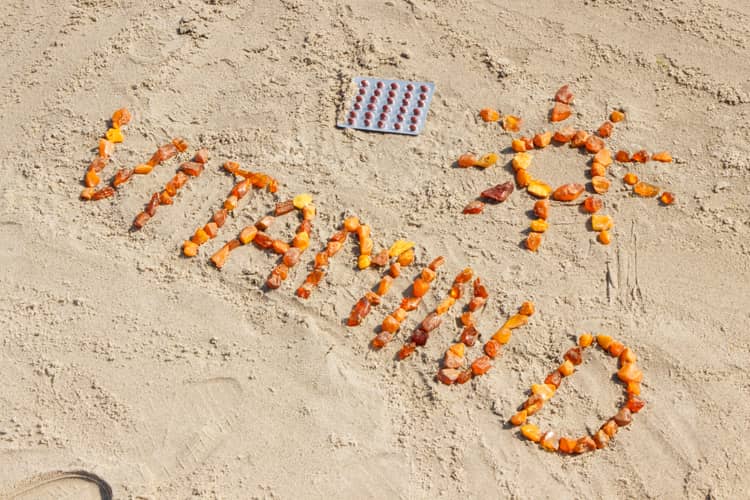How to be sun safe in fine (and not so fine) Irish weather and why it is important?

Finally, the weather has decided to take a turn for the better enabling us all to venture outdoors to get much needed sun, sand, exercise and vitamin D!
Staycations are the order of the day by Government officials unless you are willing to quarantine for 2 weeks after returning from most of those countries abroad that are not on the green list. So, for the vast majority of us, a holiday at home is a certainty this summer.
Whilst one of the first holiday checklists on foreign holidays may be Sun creams, it certainly is not top of the list on a Staycation – perhaps anoraks and raincoats may be more fitting! 😊
Predicting the Irish weather ahead of time is like trying to predict the lottery – it rarely if ever happens. In Ireland, the weather pattern has changed in recent years, most probably because of climate change – another reason perhaps why our trusted postman in Donegal who predicted the weather some years back is not quite as accurate as he once was!
Our summers therefore have got warmer but they are often not filled with blue skies and sunshine, oh no, regional flash flooding and changeable weather are quite common.
Do you only wear sunscreen in full sunshine and blue skies then?
My advise would be NO and I will attempt to offer advise as to why this is the case and also why it is important particularly in Ireland.
- Excess Sun Exposure over time is proven to be the predominant cause of skin cancers.
- Skin Cancers are the most common cancers in Ireland, accounting for 11,000 diagnosed cases in 2015. The National Cancer Registry of Ireland (NCRI) expects this number to double by 2040.
- UVB Sun Rays are not absorbed by clouds but instead dispersed to spread over a broader area once they reach earth. Therefore, partial cloudy days can be equally as dangerous as full blue skies in causing sunburn and sun damage.
So how do I know if I need sun protection before heading outside?
The most accurate way of ascertaining whether sun protection is required to be ‘Slap dashed’ all over the body is to look at the UV Index. This metric of measuring the suns UV penetration is readily available on smartphones through various apps. It is also possible to get a daily update on the UV index in Ireland through Met Eireann – https://www.met.ie/uv-index. The index reads between 1 – 11. Any number above 2 requires sun protection.
Another way of knowing you needed sun protection when its too late is when your sun burnt. If your sun burnt you have had too much sun exposure and may be a lesson for the next day or week ahead to cover up.
The process of tanning is a trigger in our skin to produce more melanin from melanocytes. Extra melanin in our skin is why our skin darkens and is responsible for helping our skin absorb more of the sun’s UVB rays thus reducing cell damage. This is the reason people with darker skin can tolerate the skin better than those with light pale skin.
What, which and who of sun creams and sun protection?
All children should wear sun protection. Why? Because scientifically it is proven that over exposure to sun in early life is lightly to lend to a skin cancer diagnosis in later life.
A good quality sunscreen should offer both UVB and UVA protection. Sunscreen ingredients can be organic chemical agents ( e.g. oxybenzone, anisotriazine) that absorb UV radiation or inorganic agents (e.g titanium dioxide) that absorb and scatter UV radiation.
The sun protection factor (SPF) describes how well the product protects against UVB damage. It is based on the time it takes unprotected skin to start to turn red. For example, if it takes 10 minutes without protection, then using and SPF 30 product protects the skin for 30 times longer – 300 minutes ( five hours ).
UVA protection is more difficult to describe because there is no early warning of UVA damage ( like burning caused by UVB ). The star rating indicates how well a product protects against UVA ( on a scale of 1-5 ). A 4-5 star rating is ideal.
Sunscreen products must be applied in sufficient quantity to provide the level of protection indicated by the SPF star rating. As a rule of thumb, about six full teaspoons of sun cream are needed for one adult body. Two teaspoons of sunscreen are enough for the head, arms and neck.
To maintain the level of protection, sunscreen should be re-applied every two hours to replace product lost by washing/swimming, rubbing or sweating.
The recommended sunscreens for most people are a broad spectrum sunscreen with an SPF of at least 30 (for UVB) and a star rating of 4-5 (for UVA). Organ transplant recipients should use a high factor (SPF 50) sunscreen on all exposed skin, including lips, when outdoors.
Some myths and misconceptions about sunscreens that should be noted:
- Sunscreens are not carcinogenic
- Allergy to sunscreen ingredients is rare
- Sunburn is usually the result of poor application rather than a reaction to the product
- Two applications of SPF 15 is not the same as one application of SPF 30
- It is still possible to get sunburned on a cloudy day because clouds scatter UV light rather than absorbing it.
Vitamin D Supplementation
NICE guidelines have recommended adult supplementation of 400iu daily throughout the year in Ireland and the UK. Vitamin D is synthesised in the skin. Adequate vitamin D levels are thought to have a protective effect, decreasing cancer melanoma risk and mortality.
General Sun Protection Factors
- Avoid exposure to UV light – stay in the shade or indoors between 11am and 3pm
- Avoid burning – sunburn is a sign of significant skin damage
- Cover up – wear a wide-brimmed hat, good quality sunglasses and loose clothing that covers the skin.
- Avoid sunbeds altogether. They are not a safe alternative to lying outside in the sun.
So in brief, enjoy the sunshine and the Staycation holiday but don’t forget the sunscreen. A preventative approach is always better than the cure!
References:
- https://www.cancer.ie/cancer-information-and-support/cancer-types/skin-cancer
- NICE CKS. Vitamin D deficiency in adults – treatment and prevention
Dr Christine Clark, Sun protection & skin cancer. Published online 2020 June 15


